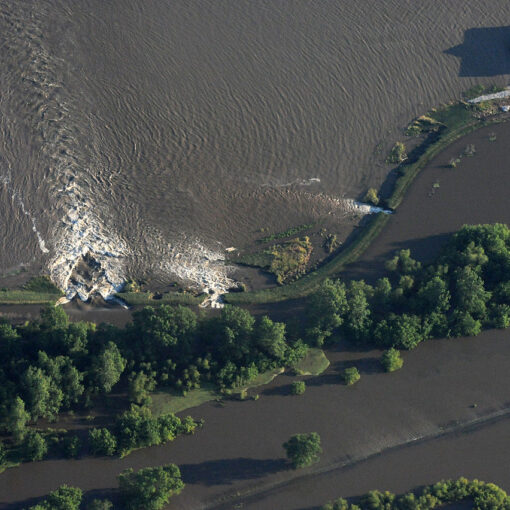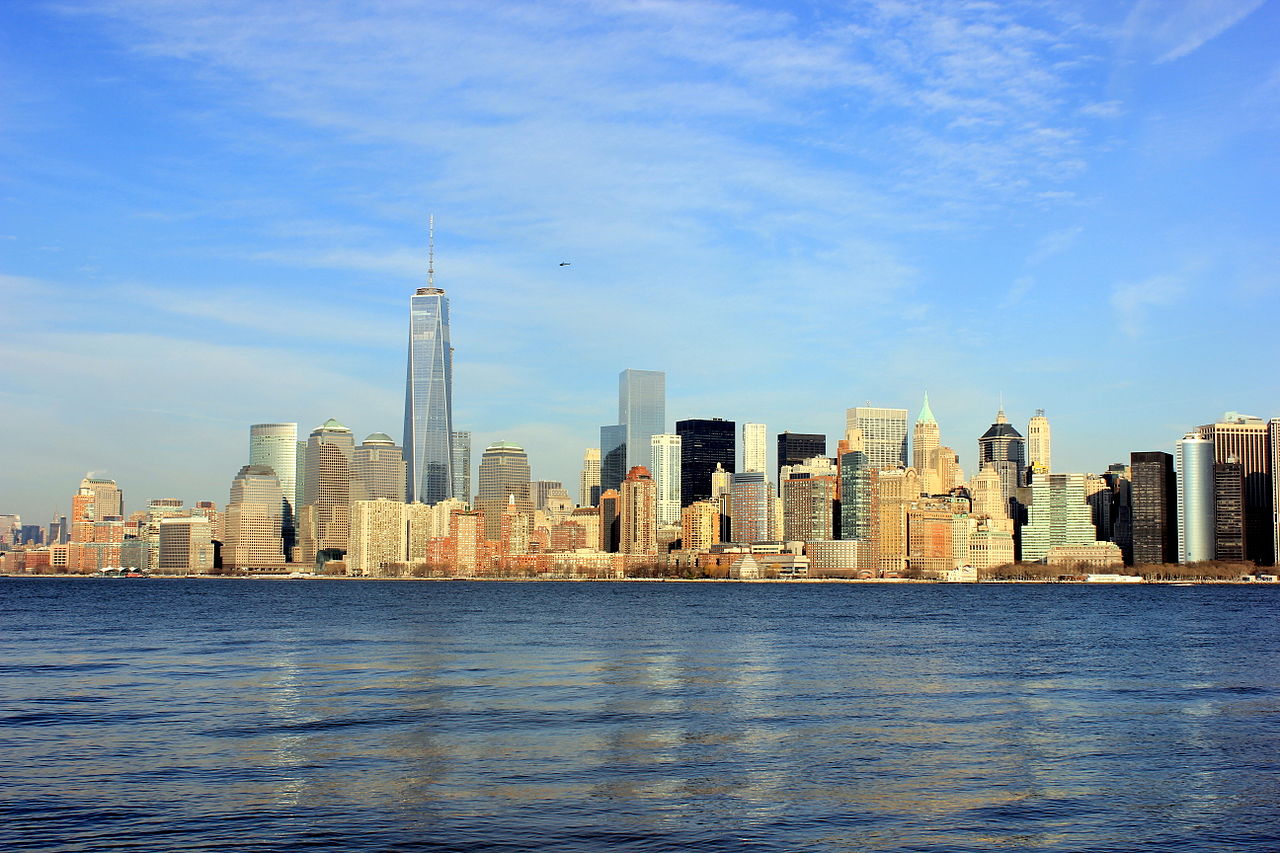
In March 2023, two important decisions regarding the operation of newly built coal-fired power plants were handed down by courts in Japan. On March 9, 2023, the Japanese Supreme Court refused to hear the first climate change litigation brought before it without specifying substantive reasons. (Citizens’ Committee on the Kobe Coal-Fired Power Plant v. Japan) Two weeks later, a civil complaint involving the same facts received a first-instance judgment rejecting the request for an injunction to block the construction and operation of coal-fired power plants. (Citizens’ Committee on the Kobe Coal-Fired Power Plant v. Kobe Steel Ltd., et al.) This blog post explores how the citizens in Kobe, a city in west Japan, attempted to stop the construction and operation of new coal-fired power plants through administrative and civil law actions. Background information about the general climate context and litigation in Japan is available in a previous blog post.
Backgrounds
After the Great East Japan Earthquake in 2011, all nuclear power plants in Japan were temporarily shutdown due to safety concerns. This led to the increased use of other energy sources, especially coal, for electricity generation. In April 2013, the Ministry of Environment and the Ministry of Economy, Trade, and Industry developed the ‘Director-General Meeting Agreement’ that substantially loosened the assessment standards for building new coal-fired power plants.
In Kobe city, the construction of two new coal-fired power plants was planned, and the operator started the environmental impact assessment despite the opposition by the Kobe residents in 2014. In 2018, a group of 40 citizens filed a civil complaint and a group of 12 citizens filed an administrative complaint with support from an environmental NGO Kiko Network.
Civil Case: Citizens’ Committee on the Kobe Coal-Fired Power Plant v. Kobe Steel Ltd., et al. (Kobe Civil Case)
In September 2018, a group of 40 citizens sued Kobe Steel Ltd., Kobelco Power Kobe No. 2 Inc. and Kansai Electric Power Co., Inc. and requested an injunction to block the construction and subsequent operation of two coal-fired power plants. In the complaint, the Plaintiffs argued that they were likely to suffer damage from air pollution and the emissions of greenhouse gases by the coal-fired power plants and those would violate personal rights or the right to a peaceful life of the Plaintiffs.
Personal rights (人格権, jinkaku-ken) are constitutionally derived human rights related to personal well-being, including the right to life, bodily integrity, and health. The right to a peaceful life (平穏生活権, heionseikatsu-ken) is a variant of personal rights and is comparable to Article 8 of the European Convention of Human Rights with more emphasis on physical and mental health aspects. Those rights are established through case law and frequently invoked in environmental pollution cases.
The Plaintiffs in the Kobe Civil Case claimed a violation of personal rights to life, bodily integrity and health on account of climate change. The Plaintiffs argued that climate change would be aggravated by greenhouse gas emissions from the coal fired power plants, leading to more extreme heat and rainfall events that would cause harm to the Plaintiffs. On this point, the Kobe District Court accepted that carbon dioxide emissions, including emissions from coal-fired power plants, contribute to climate change and that personal rights can be violated by climate change. However, the Court rejected the Plaintiffs’ claim, ruling that the risk of harm to individuals was uncertain and not concrete. The Court further stated that the attribution of responsibility would also be problematic considering the tenuous causation between the GHG emissions and likely damage to be suffered from climate change. All of this suggests that, while climate change impacts could theoretically support a claim for violation of personal rights, providing such a claim will be difficult. The difficulty of showing concrete danger was also the reason that the Plaintiffs in Sendai Citizens v. Sendai Power Station, the first climate change case in Japan, withdrew a claim based on greenhouse gas emissions and focused on air pollution arguments.
The Plaintiffs in the Kobe Civil Case also claimed a violation of the right to a peaceful life. They argued that the right to a peaceful life encompasses the right to a healthy and peaceful life, which is the right to live with clean air and a stable climate. Those two rights were invoked for the first time in this case. The right to a healthy and peaceful life is a new concept derived from the right to a peaceful life, which deals with the anxious or uncomfortable feelings that an objectively risky activity can cause. The word ‘healthy’ was added by the Plaintiffs to emphasize that the risk of climate change is a direct threat to people’s life and health. While the Plaintiffs argued that there was rational fear, the Court rejected this claim with the same reasoning above, that the fear about climate change was not sufficiently concrete to be recognized as a human rights violation since there were many uncertain factors about the possible damage by climate change. The court further held that the right to a stable climate was not an established right.
In addition to the above claims based on climate change, the Plaintiffs in the Kobe civil case also strategically included arguments on air pollution. This has been common in other Japanese climate cases since it is relatively easier to show the causation of air pollution in the way that plaintiffs suffer more apparent physical harm from a more identifiable source of air pollution. The Plaintiffs argued that the coal-fired power plants would emit large amounts of pollutants such as NOx, SOx, and PM2.5, which would negatively affect their health and thus violate personal rights or the right to a peaceful life. In the Court’s opinion, however, the air pollution was not serious enough to be considered a concrete danger either.
Lastly, during the court proceedings, the Plaintiffs added a preliminary request for partial injunction of the coal-fired power plants by saying that the reduction of carbon dioxide emission was necessary for achieving the carbon reduction targets. However, the Court did not touch upon this claim.
In short, Kobe civil case attempted to stop the operation of coal-fired power plants by creatively invoking new types of rights and by referring to international practice, such as the Paris Agreement, Urgenda Foundation v. State of the Netherlands, Glasgow Climate Pact, and carbon budget theory. However, the Japanese judiciary seems reluctant to recognize concrete danger nor attribution of responsibility of climate change to specific actors. This makes it difficult for citizens to bring claims against corporations and request an injunction on the basis of tort law to activities that are harmful to climate even though climate change is known to cause health damage to people.
Administrative Case: Citizens’ Committee on the Kobe Coal-Fired Power Plant v. Japan (Kobe Administrative Case)
In both the first and second instance judgments, the Courts did not recognize the standing of citizens in relation to climate change. The Courts held that the interest of people to not have their health damaged by climate change was a public interest and not an individual interest to be protected. Additionally, with regard to the lack of consideration of PM2.5 in the EIA which the Plaintiffs problematized, the Courts decided that this was within the discretion of the Ministry of Economy, Trade and Industry, and the Notice of Finalization was considered legal. This case was appealed to the Supreme Court and was closed with that Court’s refusal to review the case. The judgment by the Osaka High Court was thus upheld.
This non-recognition of standing closes the path for citizens to stop the GHG emissions through administrative litigation as their claims cannot be heard without standing and suggests that a change in policy-making is required to change the current situation with the use of coal.
Discussion
As mentioned at the beginning of this blog post, the background of these two lawsuits was the Director-General’s Summary Report, which was concluded amid the power supply crisis after the Great East Japan Earthquake. At that time, the Kyoto Protocol had already been signed in 1997, and it was scientifically clear that significant reductions in greenhouse gas emissions were needed to combat climate change. Nevertheless, the Japanese government chose to expand coal-fired power generation, which is a major source of emissions. The government support coal, despite the availability of lower-emission alternatives, including renewables.
Courts in several other countries have issued decisions that actively promote climate change measures based on a clear legal recognition that climate change causes human rights violations. (e.g. Urgenda Foundation v. State of the Netherlands, Neubauer, et al. v. Germany, Milieudefensie et al. v. Royal Dutch Shell plc.) In contrast, the Japanese courts’ decision to allow the maintenance of coal-fired power generation within the framework of administrative discretion can be regarded as going against the global judicial trend.
Kobe administrative case read along with Kobe civil case shows that there are practically no legal means for citizens to hold any actors, the State nor corporations, accountable based on GHG emissions. The possible legal means left to reduce the GHG emissions is to stop the construction and operation of coal-fired power plants on account of air pollution. Otherwise, a change in policy-making or law is necessary to accommodate climate change based arguments.





